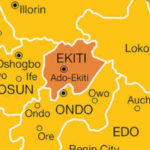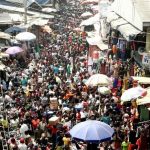Telecom companies in Nigeria have warned they may stop supporting USSD services for banks, after accusing the banks of spreading false information about how transaction charges will now be paid.
USSD services, known by many Nigerians as the “bank transfer short codes” (like *737#, *894#, etc.), help people send money, buy airtime, and check account balances without needing the internet.
On Monday, many banks sent messages to their customers saying that from June 3, 2025, the Nigerian Communications Commission had directed them to stop taking USSD charges from customers’ bank accounts. According to the message, charges would now be taken directly from users’ airtime instead.
The notice from the banks said: “In line with the directive of the Nigerian Communications Commission, please be informed that effective June 3, 2025, charges for USSD banking services will no longer be deducted from your bank account. Going forward, these charges will be deducted directly from your mobile airtime balance.”
The message also added that each USSD session will cost ₦6.98 per 120 seconds and that users must give consent before airtime is deducted.
But telecom operators—MTN, Airtel, Glo, and 9mobile—say this message is false and misleading. They said it was not a direct order from NCC, but a joint agreement involving the NCC, Central Bank of Nigeria (CBN), telecom companies, and banks.
Chairman of the Association of Licensed Telecom Operators of Nigeria (ALTON), Engr. Gbenga Adebayo, said the banks are twisting the facts.
“I don’t understand why the banks are twisting agreements and distorting information just to favour their selfish interests. In the first place, the information wasn’t a directive from the NCC but a joint regulatory agreement between the NCC and the Central Bank of Nigeria, CBN, witnessed by the telcos and the banks,” Adebayo told *Vanguard*.
He explained that the agreement stated that if the banks fully paid all the USSD debts they owed telecom operators by June 2, 2025, they would be allowed to move to the new billing method—called end-user billing—where customers would pay directly through their airtime.
Adebayo said, “The reason for that clause was because the telcos insisted that the process of migration is such that will not allow a customer to be billed twice—in other words, that a subscriber would not have his airtime deducted and also have his money deducted from his bank account for the same service.”
He revealed that while some banks have paid their debts, many others still owe huge amounts. As a result, the new billing system cannot begin.
“Our position now is that if that is the way the banks want to treat the agreement, we may withdraw support for their USSD services. It is not a must-have. They can do without it. But they should clear the debts as agreed,” Adebayo warned.
This disagreement has raised fresh concerns among millions of Nigerians who rely on USSD banking services daily, especially in areas without internet access.
As of now, the telecom operators have not stopped USSD support, but if the issue is not resolved soon, Nigerians may no longer be able to use USSD codes for banking.











